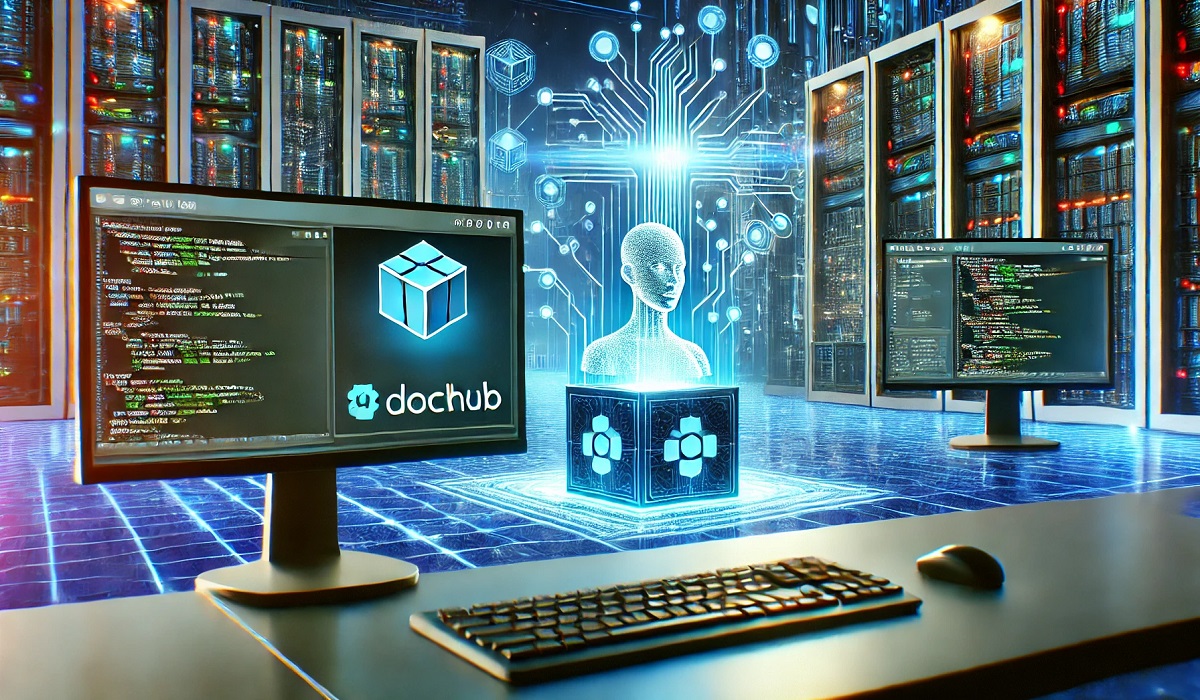TECHNOLOGY
GenAI-Stack-Docker GitHub: A Complete Guide to AI Development with Docker

Artificial intelligence (AI) development has seen a meteoric rise recently, with developers constantly seeking tools to simplify and accelerate the process. One such tool, GenAI-Stack-Docker, has gained popularity due to its integration with GitHub and Docker. This robust combination offers developers an efficient and scalable way to manage AI projects. Whether you’re a beginner or an experienced AI enthusiast, understanding the GenAI-Stack-Docker GitHub repository is crucial to optimizing your workflow.
In this article, we’ll break down the features, benefits, setup process, and practical applications of GenAI-Stack-Docker GitHub, providing you with actionable insights.
What Is GenAI-Stack-Docker on GitHub?
GenAI-Stack-Docker GitHub is an open-source repository integrating Docker’s containerization technology with generative AI tools. It allows developers to efficiently package, deploy, and manage AI models and related software. The repository is hosted on GitHub, making it accessible to developers worldwide.
Key Features of GenAI-Stack-Docker GitHub
- Pre-configured Docker images for AI frameworks such as TensorFlow, PyTorch, and Hugging Face.
- Simplified deployment with Docker Compose.
- Modular architecture for seamless customization.
- Community support and frequent updates on GitHub.
Why Choose GenAI-Stack-Docker GitHub for AI Projects?
1. Simplified Setup
By utilizing Docker, developers can bypass dependency issues, creating a hassle-free setup for AI development environments.
2. Scalability
Docker containers ensure that AI models can be deployed on various platforms without compatibility issues, making them highly scalable.
3. Collaboration Through GitHub
The repository’s open-source nature fosters collaboration, enabling teams to work on the same AI project seamlessly.
4. Cost-Effectiveness
Using pre-built Docker images reduces the need for extensive hardware, significantly cutting costs.
How to Get Started with GenAI-Stack-Docker GitHub
Setting up GenAI-Stack-Docker GitHub requires minimal effort. Follow these steps to get started:
Step 1: Clone the Repository
Use the following command to clone the repository to your local machine:
Step 2: Install Docker
Ensure Docker is installed and running on your system. You can download it from the official Docker website.
Step 3: Build and Run Containers
Navigate to the project directory and use Docker Compose to build and run containers:
Step 4: Access the Environment
Once the containers are running, access the development environment through the provided URL or terminal commands.
Top Benefits of Using GenAI-Stack-Docker GitHub
Streamlined Workflow
Docker ensures a consistent environment across development, testing, and production, reducing friction in the AI pipeline.
Enhanced Portability
Docker images can run on any platform, allowing developers to test and deploy models without compatibility concerns.
Time-Saving
Pre-configured environments eliminate the need for manual setup, saving valuable development time.
Best Practices for Leveraging GenAI-Stack-Docker GitHub
To make the most of this powerful tool, consider these best practices:
- Keep Dependencies Updated: Regularly update Docker images to ensure compatibility with the latest AI frameworks.
- Leverage Community Support: Engage with the GitHub community for troubleshooting and feature requests.
- Optimize Container Resources: Allocate sufficient CPU and memory to containers for optimal performance.
Common Challenges and How to Overcome Them
Although GenAI-Stack-Docker GitHub simplifies many aspects of AI development, you may encounter challenges:
1. Resource Limitations
Docker containers require sufficient resources to run AI models effectively. Consider upgrading your hardware if performance issues arise.
2. Learning Curve
Beginners may find Docker configurations daunting. Utilize tutorials and community forums to bridge knowledge gaps.
Real-World Applications of GenAI-Stack-Docker GitHub
The versatility of GenAI-Stack-Docker GitHub extends across various industries:
- Healthcare: Deploy AI models for diagnostics and medical imaging.
- Finance: Develop predictive analytics tools for stock market analysis.
- Retail: Use generative AI to create personalized customer experiences.
Comparison: GenAI-Stack-Docker vs. Traditional AI Deployment
| Feature | GenAI-Stack-Docker | Traditional AI Deployment |
|---|---|---|
| Setup Time | Minimal | Lengthy |
| Scalability | High | Moderate |
| Portability | Universal | Platform-Specific |
| Cost | Affordable | Expensive |
Troubleshooting Tips for GenAI-Stack-Docker GitHub
If you encounter issues, consider the following solutions:
- Check Docker Logs: Logs provide insights into container performance and errors.
- Verify Network Configuration: Ensure all network settings are correctly configured.
- Rebuild Containers: Rebuilding containers often resolves unexplained issues.
Conclusion
The GenAI-Stack-Docker GitHub repository represents a game-changing approach to AI development and deployment. Its integration of Docker’s containerization with generative AI tools makes it a must-have resource for developers. Whether you’re streamlining workflows or optimizing model deployment, GenAI-Stack-Docker GitHub ensures scalability, efficiency, and collaboration. By embracing this tool, you’re not just keeping up with trends—you’re setting new standards in AI innovation.
FAQs
What is GenAI-Stack-Docker GitHub used for?
GenAI-Stack-Docker GitHub simplifies the deployment and management of generative AI models using Docker containers.
Is Docker necessary for using GenAI-Stack-Docker GitHub?
Yes, Docker is essential for running the pre-configured environments provided by the repository.
Can I customize the Docker images?
Absolutely. The repository supports modular customization to suit individual project requirements.
Is GenAI-Stack-Docker suitable for beginners?
Yes, it includes documentation and pre-built configurations, making it beginner-friendly.
What industries benefit from GenAI-Stack-Docker?
Healthcare, finance, retail, and any industry utilizing AI models can benefit from this tool.
Does the repository provide community support?
Yes, the GitHub repository is actively maintained and supported by a community of developers.

 BUSINESS8 months ago
BUSINESS8 months agoService Top: Understanding Role, Dynamics, and Consent in Relationships

 TECHNOLOGY7 months ago
TECHNOLOGY7 months agoSSIS 858: Everything You Need to Know

 GUIDE6 months ago
GUIDE6 months agoLookmovie2.to Legit: A Detailed Review of Safety and Features

 FASHION8 months ago
FASHION8 months agoDIY Tips to Customize Your Orange Prom Dress and Stand Out

 GUIDE7 months ago
GUIDE7 months agoTokybook: Your Gateway to the World of Audiobooks

 TECHNOLOGY7 months ago
TECHNOLOGY7 months agoUnderstanding Libgen: The Ultimate Free Ebook Library

 GUIDE8 months ago
GUIDE8 months agoLeague of Graphs: The Ultimate Guide to League of Legends Stats and Analysis

 GUIDE7 months ago
GUIDE7 months agoLook at All Those Chickens: The Story Behind the Viral Meme
















